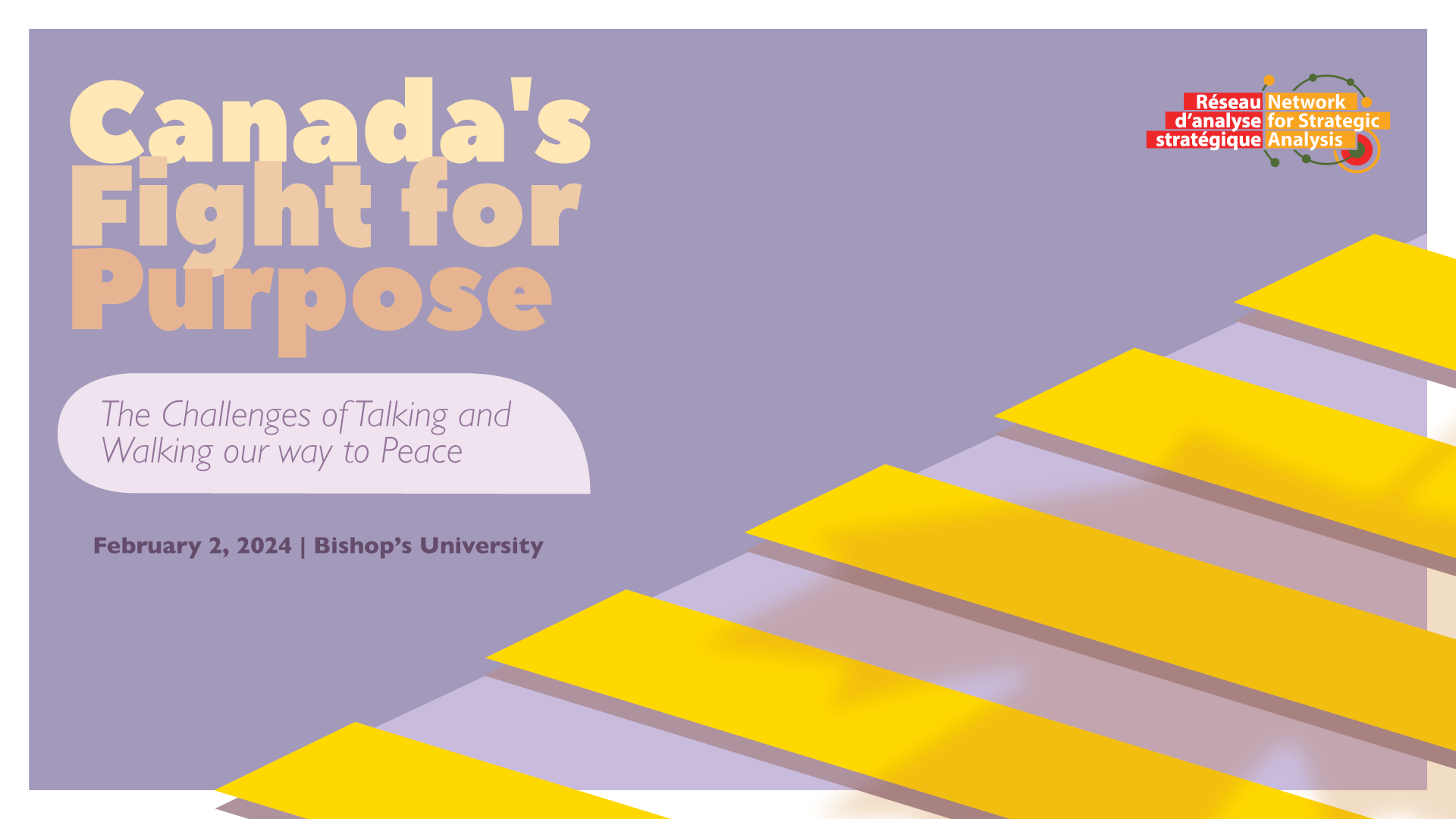Canada’s Fight for Purpose: The Challenges of Talking and Walking our way to Peace
Canada has been at the forefront of the creation and functioning of International organizations as platforms and forums of discussions amongst states, and to hone tools of intervention, to mitigate conflicts, protect populations and enhance national security. Yet strategic competition between major power complicates interventions and jeopardizes both the tools and their impact on conflicts around the world. This conference proposed to explore how Canada can position itself by optimally engaging both with International Organizations and non-EU/non-NATO countries. It will explore how the information environment factors in Canadian’s understanding of its role as members and partners of international organizations/institutions and address the risks and opportunities of burden sharing while maintaining the country’s operational readiness. The conference is designed to inform debate and advance knowledge in the field through in-depth analysis on defense policy priorities. The conference will create a well-rounded environment for discussion by tapping into research and expertise from academia, government, the armed forces, the private sector, and NGOs.
Download the Full Program (PDF 974kb)
*This event is free to attend and open to all, no registration necessary.
Programme Agenda
09:15 – 09:20 Land Acknowledgement: Camilla Rizzi (Bishop’s University) and Laurie Van Herk (Bishops’ University)
09:20 – 09:30 Introduction: Dr. Sarah-Myriam Martin-Brûlé, Bishop’s University, Co-Director Network for Strategic Analysis
09:30 – 10:30 Panel 1: Local Perception of Peace – In Canada and Abroad
Chair: Sasha Kardos-Machado (Bishop’s University) and Irma Susset (Bishop’s University)
- Yvan Yenda Ilunga, Salve Regina University
- Maj (Ret) Nicolas Boucher, Consultant, Calian, former U2 MINUSMA
- Fifi Edu-Afful, Senior Research Fellow at the Kofi Annan International Peacekeeping Training Centre (KAIPTC)Visiting Fulbright Scholar-in-Residence American University School of International Service and University of Maryland Depart of Gov’t & Politics
- Simon Delorme-Chalifoux, Consultant (Deloitte) /Lecturer (Université Laval), former Deputy Chief to ICRC in Syria
10:30 – 10:45 : Break
10:45 – 12:00 Panel 2: Canada’s Role in Disasters’ Prevention and Humanitarian Responses
Chair: Regan Simpson (Bishop’s University) and Christina Lépine (Bishop’s University)
- Junru Bian, PhD Candidate , University of Ottawa
- Kai Schafer, Canadian Kimberley Process Office
- Marie-Pier Allard-Caron, PhD Candidate, Queen’s University
- Alexandra Vargas, Global Affairs Canada
12:00 – 13:30 : Lunch
13:30 – 15:15: Panel 3 : Talking the Walk and Walking the Talk: Diplomacy
Fireside chat :
Chair: Irmah Alao (Bishop’s University) And Angus Whyte (Bishop’s University)
-
- Vincent Pouliot, McGill University
- Ambassador Sébastien Carrière, Chief of Protocol of Canada
15:15 – 15:30 : Break
15:30 – 17:00 Panel 4 : Canada’s Readiness for (Climate) Change
Chair: Mikael-Benedict Worku (Bishop’s University) and Gabrielle Liu (Bishop’s University)
- Pauline Baudu, PhD Candidate, Université du Québec à Montréal, Research Fellow, Centre FrancoPaix de la Chaire Raoul-Dandurand, non-resident Research Fellow Center for Climate and Security, Fellow at at CDA Institute
- Nicolas Hubert, Post-doctoral researcher, Visiting researcher, Centre FrancoPaix
- Colonel Marie-Christine Harvey, CAF-CDSN Fellow
17:00 – 17:15: Conclusion – Dr Sarah-Myriam Martin-Brûlé
18:00 – 19:30 Keynote Speaker: The Role of Youth
Dr. Graeme Simpson, Columbia University/Interpeace – Interpeace’s Senior Peacebuilding Advisor and Principal Representative
Graeme Simpson is the Principal Representative of Interpeace (NY) and Senior Peacebuilding Adviser at Interpeace, Independent Lead Author on the UN Security Council-mandated “Progress Study” on Youth, Peace and Security, Adjunct Lecturer in Law at Columbia University School of Law in New York City, Professor at the African Leadership Center at Kings College in London, former Civilian Adviser to the Minister of Safety and Security in the first Mandela cabinet, and in that capacity was one of the primary authors of the South African National Crime Prevention Strategy.





Comments are closed.